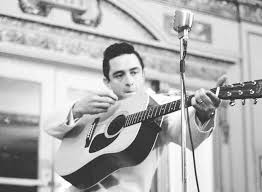It looks like there is a good chance that I will be home tomorrow, enjoying our first snow day of the winter season. Though my students will be turning their pajamas inside out and placing spoons under their pillows in hopes for a foot of snow, many of my friends and colleagues are hoping that this does not happen. With a week of vacation just a few days away and the prospect of summer vacation beginning earlier in June than ever before, many don’t want this extra day off and would rather save it for the warmer, sunnier summer months.
As for me, I will also be turning my pajamas inside out in hopes of improving our chances of a snow day. While I enjoy my summer vacation quite a bit, I live my life with the unwavering certainty that I could be dead in June, so I’ll take my extra days off whenever I can get them. With a bee sting and a car accident having already stopped my heart twice, I know how fragile life is and attempt to live my life as if it could end at any moment.
I have friends and family who also find this philosophy ludicrous. A reporter who recently interviewed me also found this way of living to be untenable and ridiculous. While they may all acknowledge the value of living every day as if it were your last, more than a few believe that I take the philosophy too far, putting off projects until the last minute in fear that I could be dead before the due date. While this is certainly true, it’s not as if I’m sacrificing my entire future for momentary bits of happiness. I’m still saving for retirement, exercising daily, and setting long-term goals. I have my eye on the future but also know that the future may never come.
Rooting for snow days and procrastinating on deadlines are just ways in which I hedge my bets. When I have the opportunity to enjoy an extra day off with my wife and daughter, I’ll always opt to take the day now, knowing that an extra day in February won’t entirely ruin June, and that June of 2010 might never come for me.
Malcolm Gladwell wrote a piece for The New Yorker back in 2002 about Nassim Taleb, a man who found himself diagnosed with throat cancer, a disease that almost exclusively afflicts smokers. Taleb was young and a non-smoker at the time, so his chances of getting throat cancer were approximately 10,000-1. Yet he somehow managed to beat these odds and end up afflicted with the disease.
Thankfully, he survived the cancer and has enjoyed a successful career in finance, where his philosophy is that it’s better to lose a little money every day than invest in such a way that losing it all is extremely unlikely but entirely possible. As a result, he makes his living by showing a profit on just a few days each while slowly bleeding cash on the rest. It’s an exacting and demanding business plan, but Taleb makes it work in order to avoid the possibility of complete disaster.
The subtitle to Gladwell’s piece say it all:
How Nassim Taleb turned the inevitability of disaster into an investment strategy
I understand Taleb’s philosophy well. He knows that enormous losses are possible in the financial world and runs his business under the presumption that it’s only a matter of time before the market experiences another crash. Like his brush with throat cancer, he knows that the unlikely can happen, and that efforts should be made to mitigate potential disaster, as unlikely as they might be.
In 2007, Taleb’s belief in the inevitability of disaster was born out as the market crash wiped out many of his competitors who did not invest in the same exacting, painstakingly safe manner.
Gladwell compares these unlikely financial disasters as black swans, a rare but not unforeseen creature in the natural world. He writes:
“Once you have been a black swan — not just seen one, but lived and faced death as one — it becomes easier to imagine another on the horizon.”
This expresses my philosophy of life perfectly. Once you have faced death, it is not difficult to imagine it skulking around the corner, waiting for another opportunity. As a result, I tend to live for today at the expense of tomorrow.
Now I’m of to turn my pajamas inside-out.








